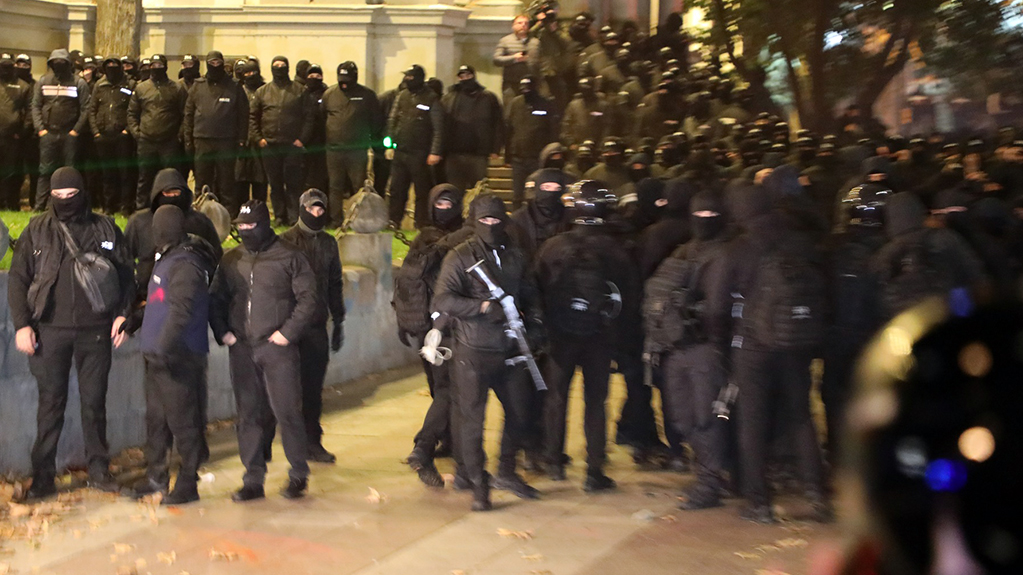The police have arrested 43 participants of the protest held in front of the Parliament in Tbilisi under administrative procedures. The Ministry of Internal Affairs accuses them of disobedience to police orders and petty hooliganism.
News
According to the Ministry of Internal Affairs, an investigation has been initiated under two articles of the Criminal Code. Article 353(1) pertains to attacks on police officers or public institutions, while the second part of Article 187 addresses the destruction of another person's property or damage caused by arson, explosions, or other dangerous means, especially when committed repeatedly and in groups.
The statement released by the Ministry of Internal Affairs claims that "as a result of illegal and violent actions" by the participants of the rally, 32 agency employees were injured.
"Some of the injured sustained severe head, eye, and body injuries. Thirteen required surgical intervention. As of now, one law enforcement officer remains hospitalized," the Ministry stated.
The special forces began dispersing the peaceful protest rally at around 2 a.m. Measures used against the demonstrators included water cannons and pepper spray. As per the Public Defender’s assessment, the Ministry of Internal Affairs violated the right to freedom of assembly, as the action was peaceful at the time special means were deployed to disperse the citizens.
During the raid, special forces physically assaulted dozens of citizens and deliberately targeted journalists who were performing their professional duties and attempting to document the violence.
The Ministry of Internal Affairs states that the participants of the rally disobeyed police instructions, verbally insulted officers, and physically confronted them.
During the night, protesters set fire to unidentified objects on Rustaveli Avenue, erected barricades, damaged property belonging to Tbilisi Municipality and private individuals, and threw glass bottles, stones, metal objects, and pyrotechnics at the police. To prevent these violent actions, the Ministry of Internal Affairs repeatedly used special means permitted by law throughout the night. The Ministry noted that participants were warned on-site before the deployment of these measures.
The protest on Rustaveli Avenue began on the evening of November 28 and continued into the morning of November 29. Citizens and opposition party leaders began gathering at the Parliament following an announcement by the illegitimate Prime Minister, Irakli Kobakhidze. He informed the public of the Georgian Dream party's decision to suspend the process of joining the European Union. According to Kobakhidze, negotiations on EU accession will not be on the agenda until the end of 2028, and the government will refuse EU budget grants. President Salome Zourabichvili described this decision as a starting point for a "constitutional coup" and claimed that the illegitimate government had declared war on its own people.















